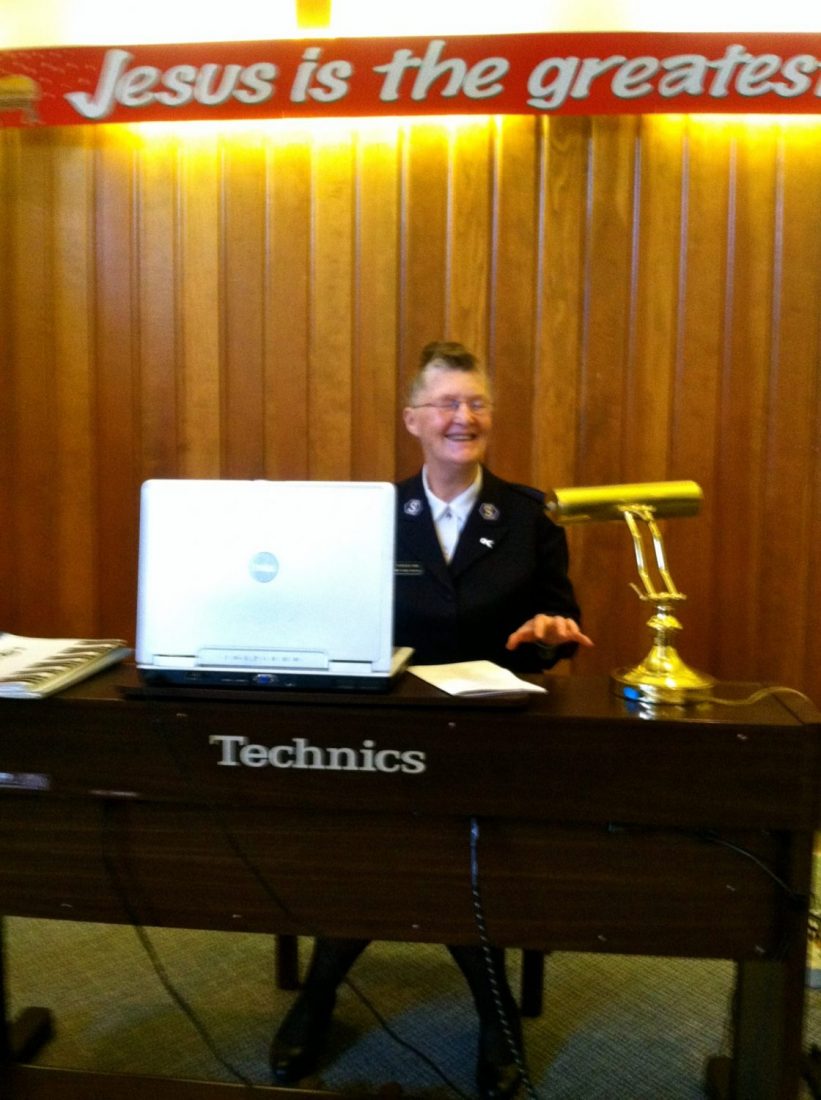By Dave Hudson, Colonel
I am not sure about others; I, however, do not like being lost. I like knowing where I am, and where I am going. My life has been made much easier by the GPS. I cannot imagine how the children of Israel felt while being lost in the desert for 40 years—not knowing where they were going, only hearing of promises of a land that “someday” they could call their own.
I equally cannot imagine their excitement when they came within sight of the river, and, on the other side, the land that God promised them. I am sure the people were overjoyed. “We are here!” “Home at last!” There would have been parties, dancing and celebrations of all kinds.
Amid all the excitement, Joshua told the people, “Consecrate yourselves, for tomorrow the Lord will do amazing things among you” (Josh. 3:5). Consecrate means to “set oneself apart.”
If I had been there, I may have said something like, “Wait a minute, Joshua; 40 years wandering around and you want us to do what? If there were ever a time to party; this is it! Forget the ceremonies; forget the praying—this is the time to have a good time. Look, right over there; it’s the Promised Land!”
The Bible is full of imagery of washing one’s body and changing clothes; it symbolizes making a new beginning with the Lord. Joshua’s instructions on this day were different, he was speaking of an internal work, a heart purification. This was a turning of the heart to God, in faith and trust in his promise, and in willing obedience to his commands that they might rightly embrace the wonder of grace that the Lord would soon perform among them.
Setting oneself apart makes an individual fully available to God and his soul-cleansing work. This same thought is reflected in David’s prayer in Psalm 139:23-24, Search me, God, and know my heart; test me and know my anxious thoughts. See if there is any offensive way in me, and lead me in the way everlasting. God’s revelation of sin in our lives must drive us to God, as David expressed in his passionate prayer in Psalm 51, Create in me a pure heart, O God, and renew a steadfast spirit within me.
In his words, Joshua was reaffirming that holiness is not just a concept or a teaching, but a command. It is a command with a promise attached; the promise depends upon obedience.
The Hebrew word behind “amazing things” is the closest word in the Old Testament for what we today call “miracles.” These folk would have heard the stories of God’s miraculous work: the plagues, the Red Sea and the wilderness. Joshua now was saying, “Tomorrow you will see.” Up to this point, the Lord’s amazing things had been through other people. But, tomorrow, Joshua told them, it was going to happen within them—no longer just stories of Moses, Joshua, Aaron…but YOU.
Yes, in the days ahead, they would certainly see God doing many amazing things before them, including giving them the land, defeating their enemies, and enabling them to claim their inheritance.
But God’s greatest work is inside the heart of the believer. And, without that internal work, there is no pleasing God. Hebrews 12:14 states, without holiness no one will see the Lord. In other words, Joshua was asking, “Do you want to see God’s amazing things? Then, consecrate yourself, allowing God to do his holy work in you.”
This is not a bargain with God in order to be able to see his amazing works; rather, it is a statement that only those who consecrate themselves before God are truly able to see his amazing things. It is a spiritual principle; do you want to see God’s amazing things? Set yourself apart for his purposes; consecrate yourself.
May the words of William Himes’ song be our prayer.
All that I am, all I can be, all that I have, all that is me, accept and use, as you would choose, right now, today.
Take every passion, every skill, take all my dreams and bend them to your will.
My all I give, Lord, for you I’ll live, Lord, come what may.











